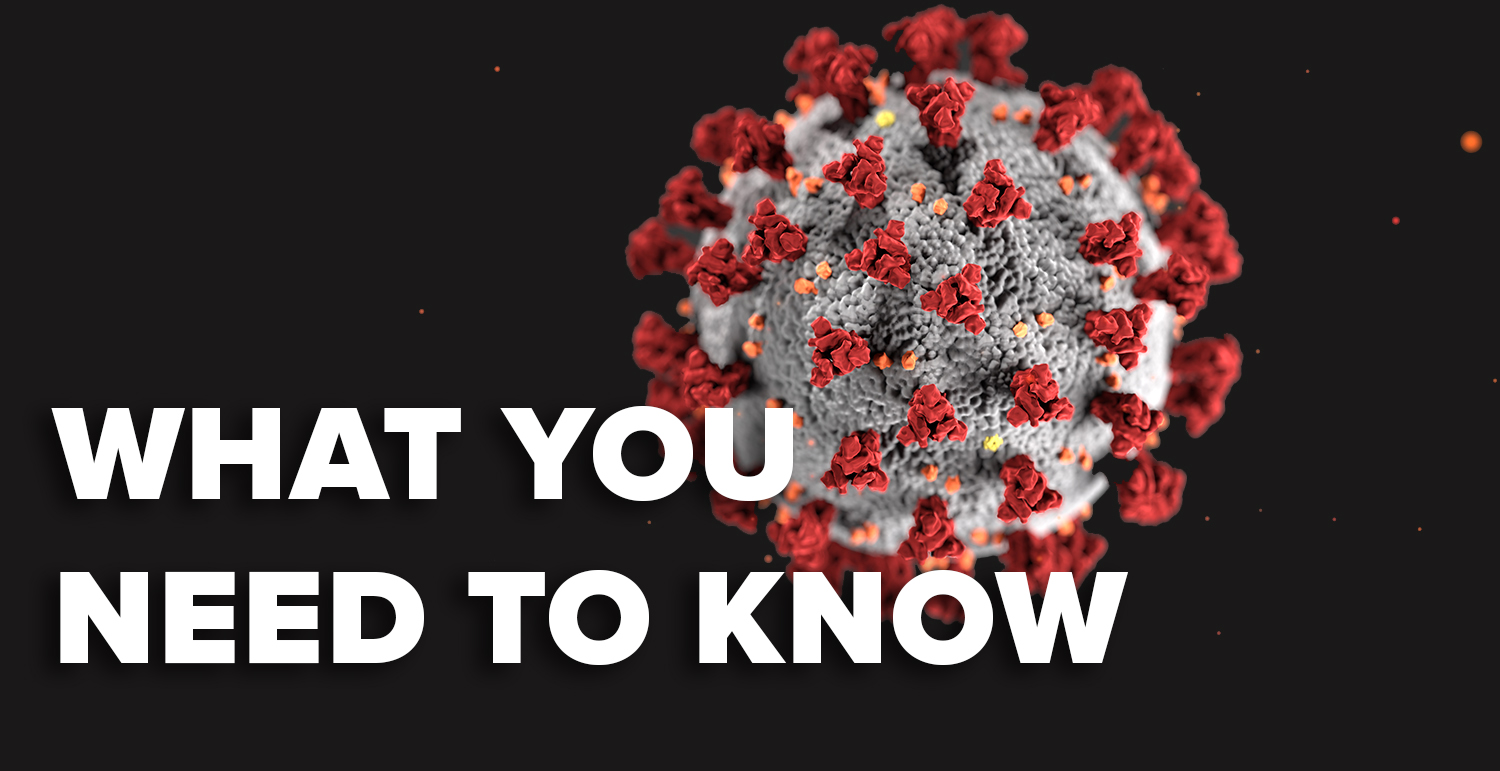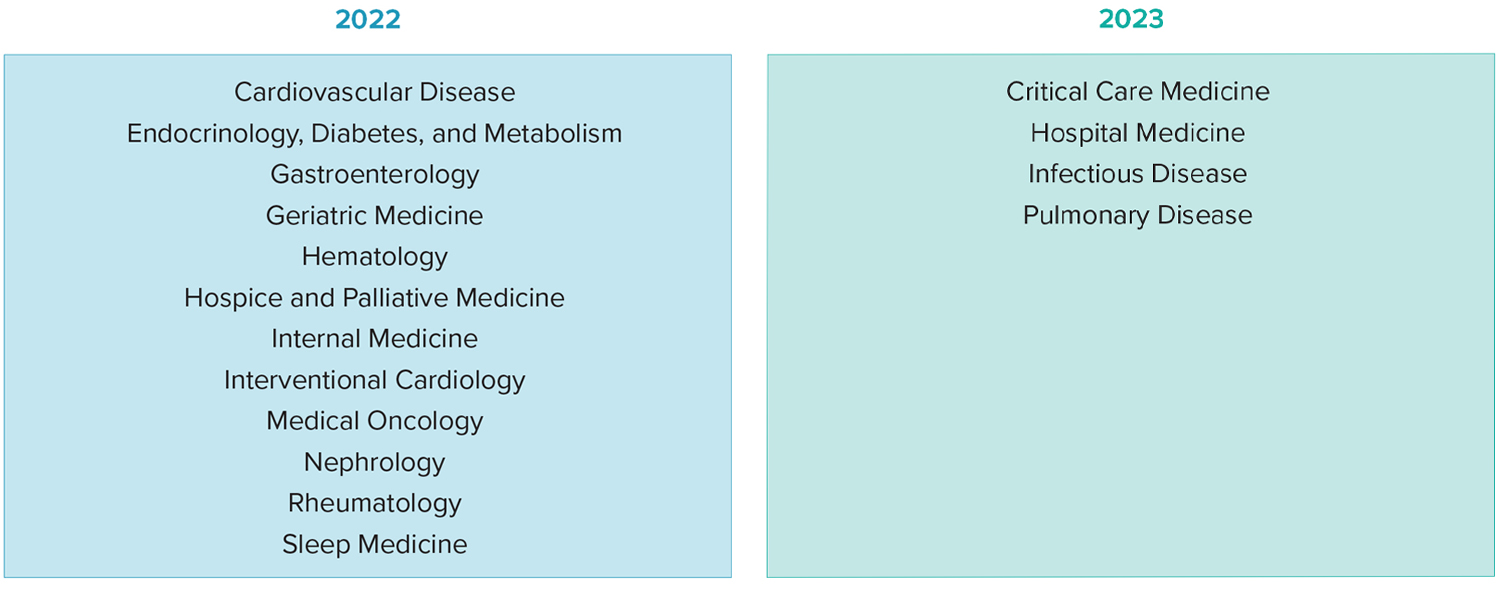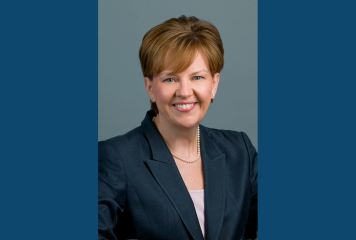ABIM Quarterly News & Notes | Summer 2020
August 25, 2020 | Posted by ABIM | Uncategorized
We know how busy you are. That’s why we’ve created this new quarterly newsletter to keep you informed about ABIM news, share insights from your fellow doctors and let you know about opportunities to get involved with ABIM. We hope you find it helpful, and thank you for all you do as an important member of the ABIM physician community.
Colleagues,
Regardless of when you entered the medical profession, this is surely a time none of us ever expected or experienced previously in our careers. Many of you have been called to the frontlines to care for patients suffering from COVID-19; or you’re dedicating your efforts to exploring potential treatments or vaccines; or to better understanding and addressing underlying structures contributing to unequal infection and mortality based on the color of a person’s skin.
It has been eye-opening for the entire country to confront the disparities in infection and mortality rates in Black and Brown communities. Black people are three times more likely to get COVID-19 (Latinx 3.5 times more likely) and twice as likely to die from it. This isn’t biology of race—it is structural racism at work, including occupational, economic and housing disparities.
Though communities of color represent 34% of the population, they are 43% of essential workers. Thirty percent of all workers can work from home, but only 20% of Black workers and 16% of Hispanic workers can. In California, 18% of the Latinx population lives in “crowded housing”, while only 2% of the white population does.
All of us doing patient care are confronting structural racism not just as a historical legacy but as the lived experience of our patients and, if we are open to seeing it, ourselves.
As we collectively work to minimize the spread of COVID-19, we remain hopeful that a safe and effective vaccine will be available soon. But we won’t be able to return to life as we knew it if a vaccine is not distributed fairly, equitably and widely accepted. While 74% of whites say they would “probably or definitely get a vaccine” if one were available, only 54% of Blacks say they would.
So, we already know that the communities most at risk of the disease have the least trust in the vaccine that might prevent it. Success in combating COVID-19 is going to be all about trust: trust by the public, including communities of color, that we have legitimate expertise and that we are “in it for them” and not “for ourselves.”
Each of us have a responsibility—and an opportunity—to take steps aimed at earning back the trust of Black and Brown patients. And especially in this challenging time where facts and expertise have become a matter of debate across wide swaths of society, board certification may matter now more than ever.
When you ask a patient how a physician becomes board certified they may not know all the details. They don’t see the time you spend studying, the late nights and early mornings catching up on your journal reading or the array of Grand Rounds and webinars you attend to stay on top of the latest.
But, they know what board certification represents: knowledge, expertise and trust.
These attributes are what sets board certified physicians apart, and what will help us get through this pandemic together.
Before I was ABIM’s President and CEO, I practiced for 30 years in Philadelphia, caring for my friends and neighbors. I remain in awe of all that you are doing for your loved ones and communities during this time. We see you, we hear you, and we are a better ABIM because of you.
I hope that some of the changes we’ve made at ABIM—providing more time to complete requirements and adding more test dates—have made your lives a little easier and give you flexibility and support so that you can focus your energy and efforts where they are needed most. And I hope we have helped you distinguish yourself as a legitimate expert among the cacophony of confusing voices patients are hearing right now.
On behalf of patients everywhere, thank you.
Richard J. Baron, MD, MACP
President and CEO
American Board of Internal Medicine
As board certified physicians are called to the frontlines of the COVID-19 pandemic, ABIM announced earlier this year how it is providing maximum flexibility with program requirements so physicians can dedicate their time and energy to caring for those in need:
- No one will lose certification if they aren’t able to complete a Maintenance of Certification (MOC) requirement this year: Physicians that have an assessment, attestation or points due in 2020 will have until 12/31/21 to complete them.
- Physicians currently in their grace year will be afforded with an additional grace year in 2021.
- Additional dates have been provided for physicians taking internal medicine initial certification exams this year. Additional dates for subspecialty initial certification exams will be released soon.
These deadlines have been updated in your Physician Portal. If you need assistance or have any questions, please contact us at 1-800-441-ABIM or request@abim.org, and we’ll provide personalized guidance.
This pandemic has challenged our health care system and country like never before. During this trying time, ABIM’s leadership wants you to know that the entire internal medicine community stands behind you and is here to support you however we can.
The new longitudinal pathway will provide you with the flexibility to maintain certification at your own pace amidst the demands of your busy life. It’s a completely redefined, interactive experience that supports your ongoing educational efforts while helping you demonstrate to your patients that you’re keeping up with advances in medicine. We invite you to check out the progress we’ve made and some of the features it will include.
You can also learn more about how the program will work, including helpful feedback, access to resources and eligibility on a special section of ABIM’s website. Some recent developments include:
Announcing the Longitudinal Rollout Schedule
ABIM is working to make the longitudinal pathway available to as many diplomates as possible as quickly as possible. When fully rolled out, more than 98% of physicians will have at least two assessment options to maintain certification. Below is the current launch schedule, and you can use our new interactive tool to find out what assessment options will be available in the future.
Why Some Specialties Are Launching in 2023
ABIM relies on physician volunteers to write and review exam questions, and the forthcoming longitudinal pathway requires substantially more questions than traditional ABIM assessments.
We heard from physicians in specialties particularly hard hit by the COVID-19 pandemic and recognized that now is not the time to divert their time and attention from caring for patients. That means four specialties—Critical Care Medicine, Hospital Medicine, Infectious Disease and Pulmonary Disease—will launch in 2023 to allow more time to create the requisite content for a high-quality assessment. ABIM will offer the Knowledge Check-In in all four of these disciplines in 2021 to provide a transition pathway to 2023.
Have feedback? Tell us what you think about this and other aspects of the longitudinal assessment.
Assessment Options in Other Disciplines
Since the longitudinal pathway requires substantially more items compared to the traditional 10-year MOC Exam as they are single use, in four highly specialized disciplines: Adult Congenital Heart Disease (ACHD), Advanced Heart Failure and Transplant Cardiology (AHFTC), Clinical Cardiac Electrophysiology (CCEP), and Transplant Hepatology there aren’t enough physicians practicing to support the development of a longitudinal pathway.
In AHFTC and CCEP, the ABIM/ACC Collaborative Maintenance Pathway will continue to be an option. CCEP will also be reevaluated for a longitudinal option in the future.
All diplomates will continue to have the traditional 10-year MOC Exam available.
Time Per Question
Physicians participating in the longitudinal pathway will be offered 600 questions per 5-year cycle (120 per year, delivered periodically) and can skip up to 100 total to meet the participation requirement.
Physicians will have four minutes to answer each question, with the ability to draw from a time bank to add more time if needed.
To determine the appropriate amount of time per question, ABIM analyzed data looking at average response times from previous exams that allowed access to an external resource. A time limit also aligns with the construct of a longitudinal assessment in that it measures what physicians should know to provide high-quality patient care and emulates the finite time they have to look up information in practice.
As ABIM’s longitudinal assessment option continues to take shape, we’d love your feedback.
Sunsetting Knowledge Check-In
The current every-other-year Knowledge Check-In will conclude at the end of 2021 as we transition to the longitudinal pathway in 2022. The traditional 10-year MOC Exam will continue as an option beyond 2021.
ABIM is a physician-led organization whose Governance structure is comprised of over 350 members on more than 50 boards and committees. Governance members help define breadth of knowledge of Board Certified internists or specialists, provide perspective on trends and scope of their discipline, and collaborate with peers to develop the fairest and most up-to-date assessments possible.
This July, ABIM welcomed a new member to the Board of Directors, Alicia Fernandez, MD.
There were also several new appointments to ABIM Council, including Bruce Leff, MD, as Chair, and Asher A. Tulsky, MD as Chair-Elect. New members of Council include Laura Evans, MD, Salahuddin Kazi, MD, Julianne Morath, RN, Rudolph Rodriguez, MD, and Lynn Tanoue, MD.
ABIM’s 12 Specialty Boards are responsible for the broad definition of the discipline across Certification and MOC and have added 29 new members and four new Chairs.
ABIM has 20 Exam Committees that are responsible for creating the assessments for Certification and MOC and have added 33 new members this year.
When recruiting for all levels of Governance, ABIM strongly encourages candidates from groups under-represented in medicine, as well as physicians who practice in smaller communities or safety-net institutions, to apply. Check here for current Governance openings.
Beginning in October 2021, ABIM will offer certification in Neurocritical Care. This new certification option will be jointly developed by the American Board of Anesthesiology (ABA), the American Board of Emergency Medicine (ABEM), the American Board of Internal Medicine (ABIM), the American Board of Neurological Surgery (ABNS), and the American Board of Psychiatry and Neurology (ABPN). The certification will be administered by ABPN and offered every other year.
At the time of application, physicians must have been previously certified by ABIM in Critical Care Medicine, or if pursuing a practice pathway, be currently certified by the United Council for Neurologic Subspecialties (UCNS) or Committee on Advanced Subspecialty (CAST) in Neurocritical Care. Physicians must also meet the Training or Practice Pathway requirements.
Registration for all 2021 exams will open on December 1, 2020. Visit ABIM.org for exam date information.










